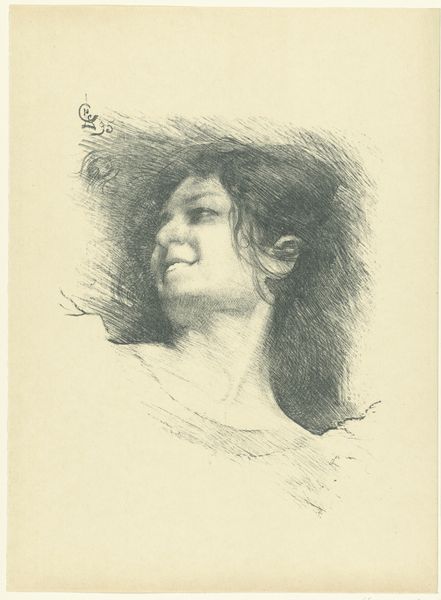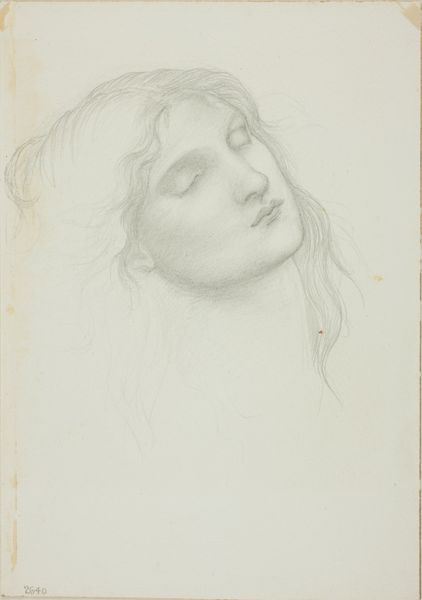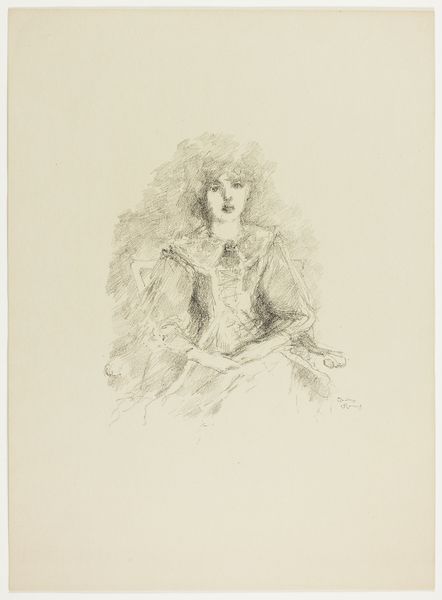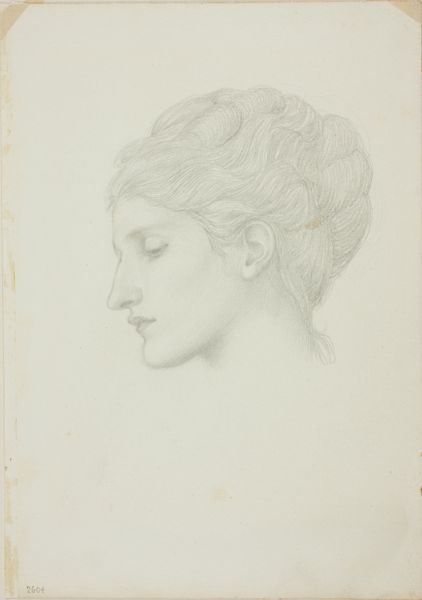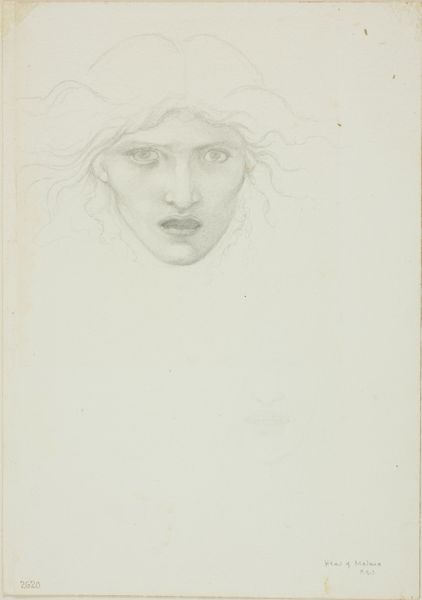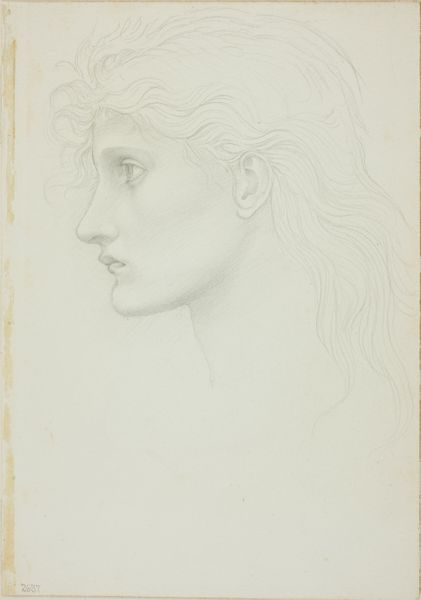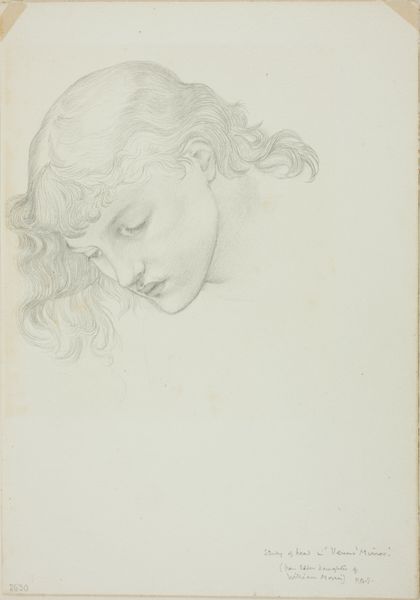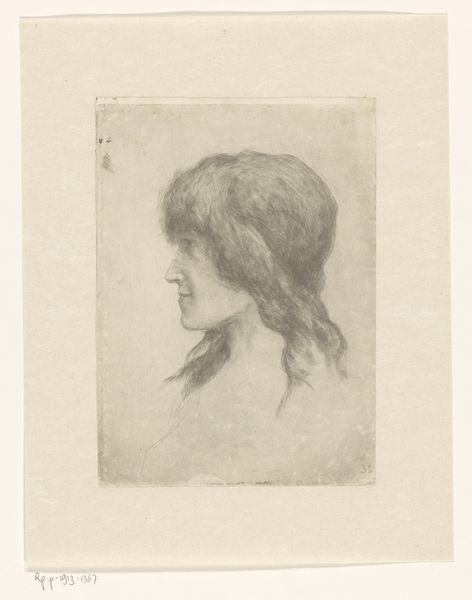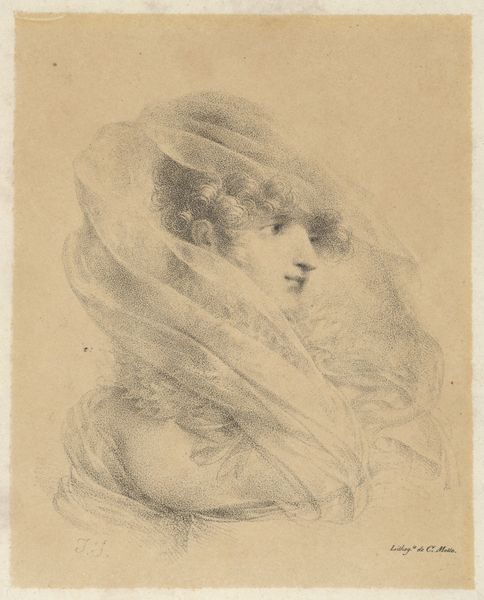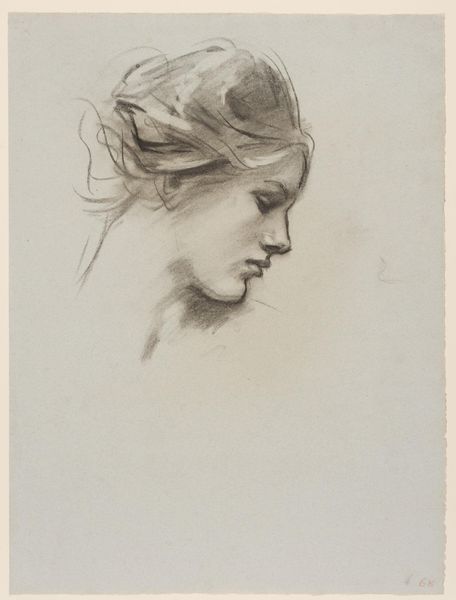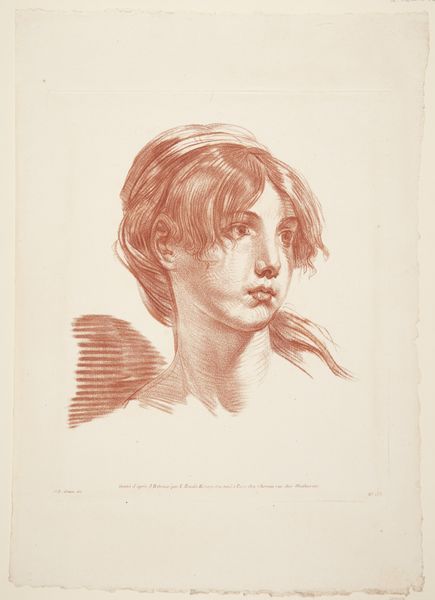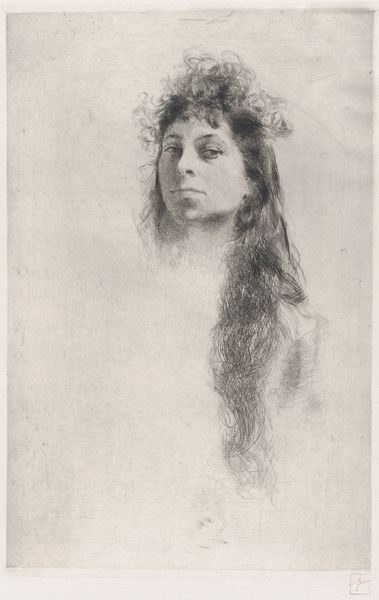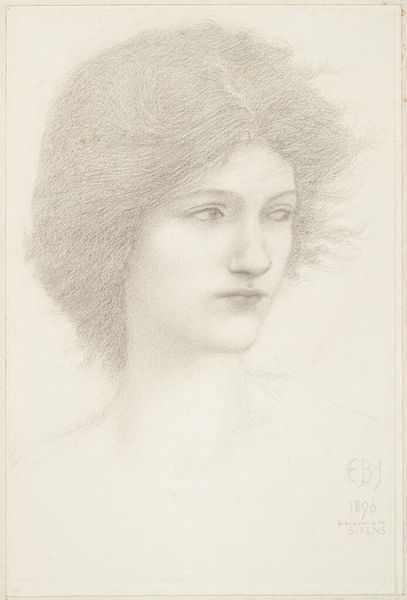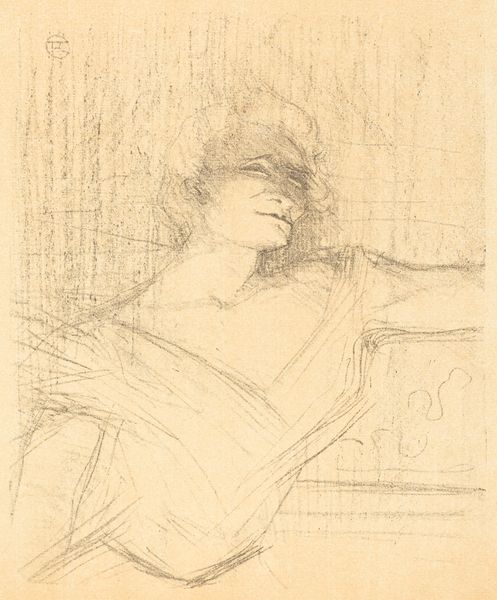
Head of a Woman with Face Upturned c. 1873 - 1877
0:00
0:00
drawing, print, paper, pencil, graphite
#
portrait
#
pencil drawn
#
drawing
# print
#
pencil sketch
#
paper
#
pencil drawing
#
pencil
#
graphite
#
pre-raphaelites
#
academic-art
Dimensions: 253 × 178 mm
Copyright: Public Domain
Edward Burne-Jones made this pencil drawing, Head of a Woman with Face Upturned, on paper. We can read this idealized figure through the lens of the Pre-Raphaelite Brotherhood, a group that Burne-Jones was closely associated with in England. These artists rejected the dominant academic painting of the time. They looked back to Medieval and early Renaissance art for inspiration, valuing sincerity, simplicity, and a connection to nature. Think about the social conditions that might have shaped this artistic vision. The industrial revolution had transformed England, bringing wealth and progress but also social upheaval and a sense of loss. The Pre-Raphaelites, like William Morris and John Ruskin, critiqued industrial society and sought to create a more beautiful and meaningful world. Their work was both nostalgic and forward-looking, and it challenged the values of the establishment. To understand this art more fully, we can turn to letters, diaries, and exhibition reviews of the period. Art is never made in a vacuum.
Comments
No comments
Be the first to comment and join the conversation on the ultimate creative platform.
